From factory floor to artists’ enclave
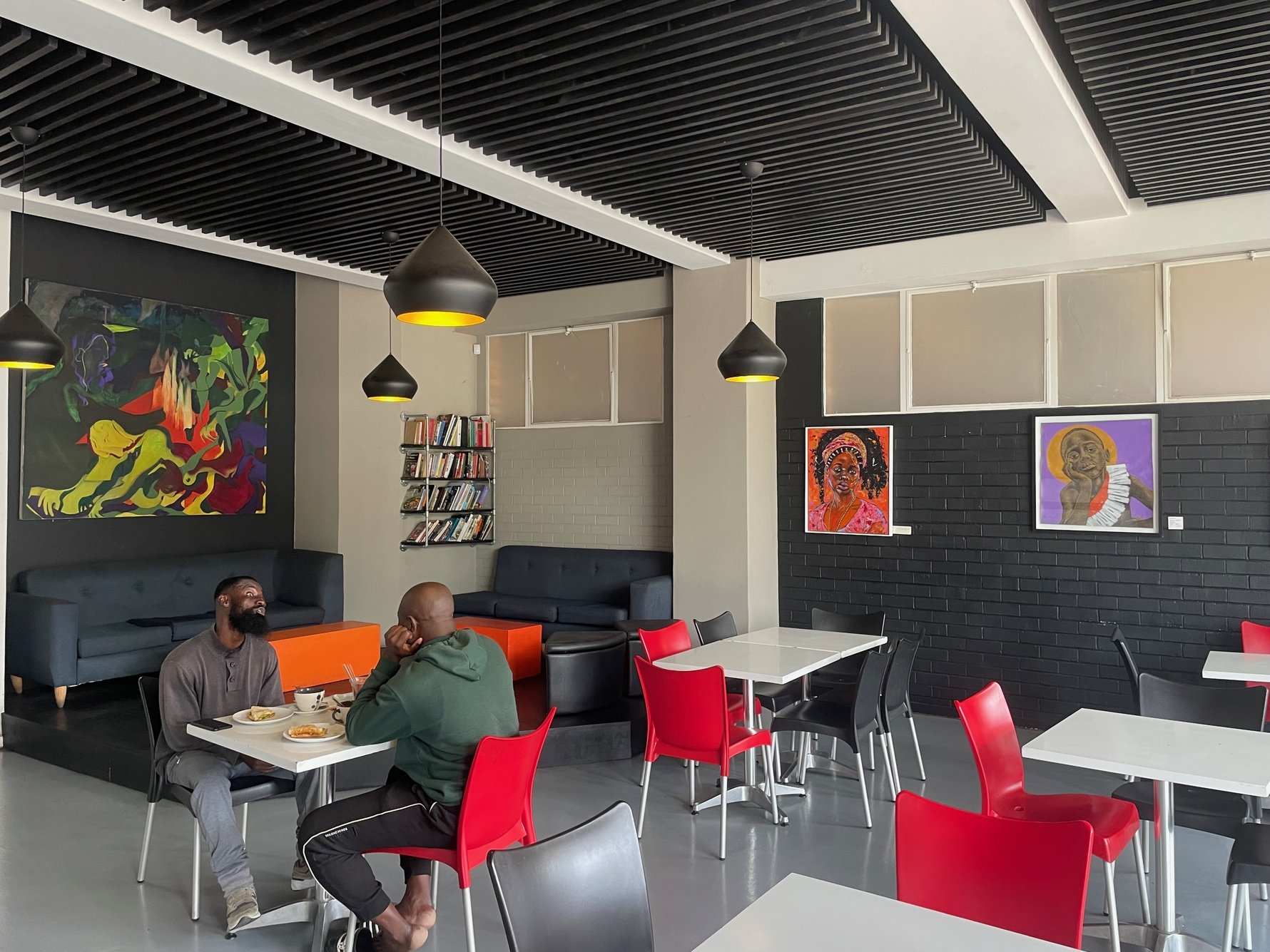
It was in 2012 that Ian Blacher renovated this former textile plant into a five-storey hive of artist studios. The building’s generous factory bones – wide windows, high ceilings, and abundance of natural light – made it a relatively natural transition.
After a quick cup of coffee at Cleo's Grind, a café on the ground floor that make some rather tasty toasties, we met with artist Senzeni Marasela for a tour of Ellis House Art Building (November 2025).
By artists, for artists
At its core, Ellis House is a site of experimentation and collaboration. It has grown into an important cluster of artist studios, galleries, and creative spaces that anchor the inner city and the older Joburg suburbs to the east.We begin on the ground floor, home to Ellis House Art Gallery. Its wide, street-facing windows – once glazed over – were cleared at the start of 2025, when resident artists decided that exhibitions should be visible from the street. Although the gallery is open by appointment only, this simple change has made the building far more present in the neighbourhood, inviting passersby to engage with it as they walk to school or work. And in the evenings, when the gallery lights click on, the effect is striking: illuminated windows spill onto the pavement, giving Ellis House a warm glow and an unexpected sense of welcome.
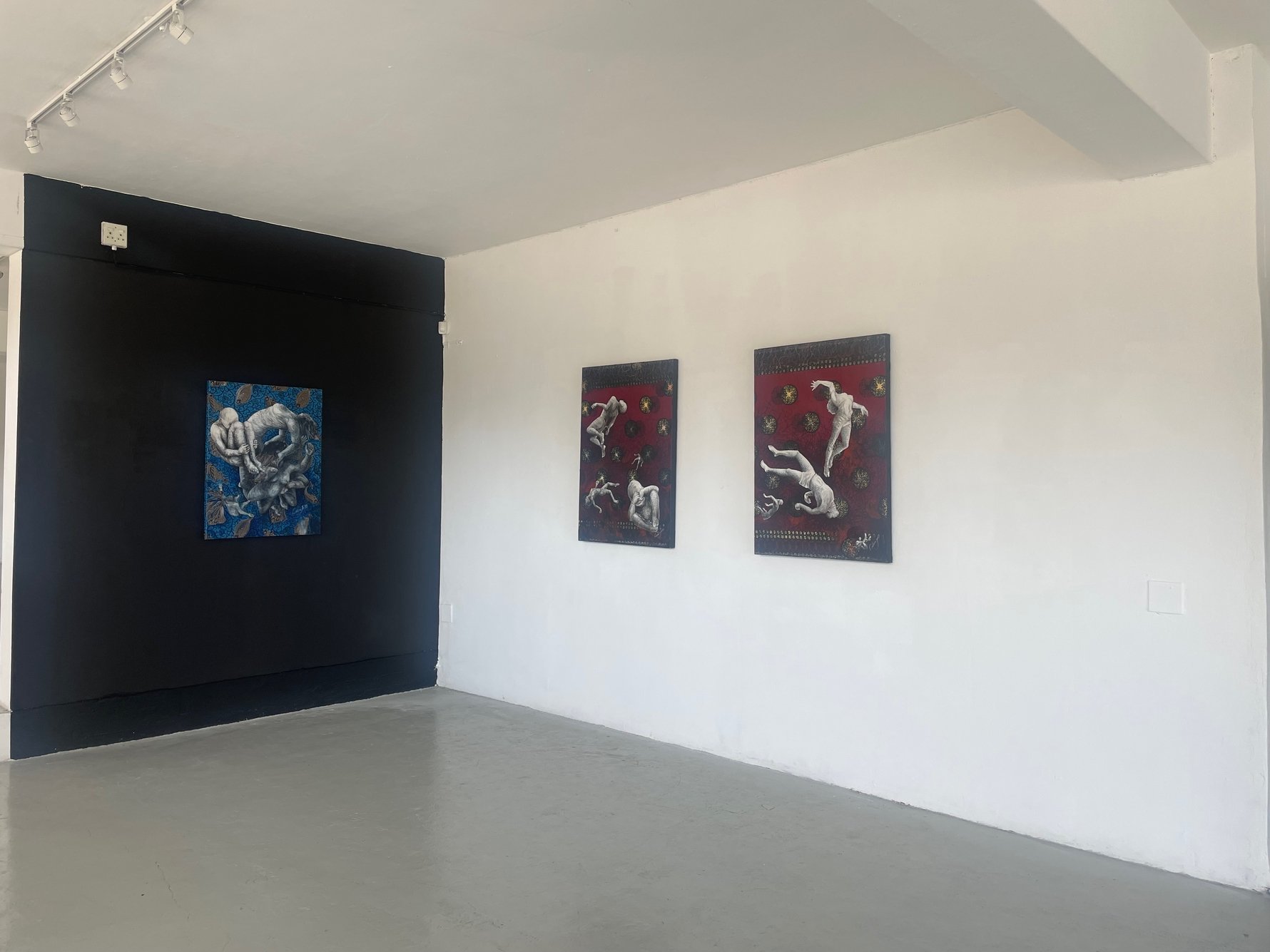
Moving through the densely symbolic works of João Ladeira that adorn the walls for the solo Arise Africa, Marasela explains that exhibitions are curated by fellow resident artists – dialogue, engagement, and critique are fundamental to the Ellis House ethos. With a mix of artists just emerging from school or university alongside seasoned practitioners such as Marasela herself or Blessing Ngobeni, the building becomes an invaluable site of exchange, offering a broad network of support for the artists who hold space there.
Exhibitions typically run for two weeks to a month, ranging from solo resident exhibitions to group shows and occasional guest programming – a constant pulse of new voices and ideas.
A labyrinth of the senses
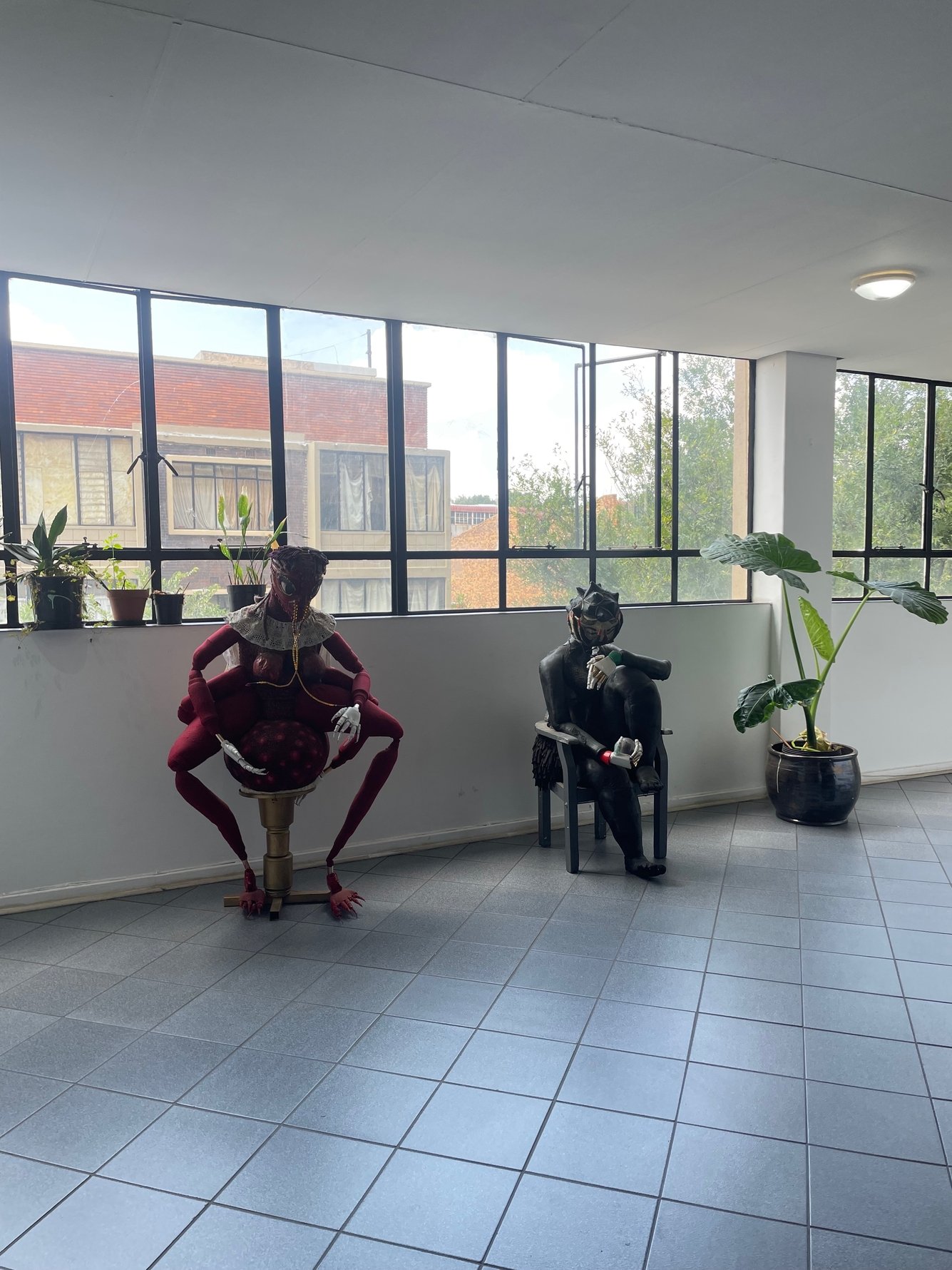
Waiting for the lift in what was once the factory’s docking bay, the history of the building becomes evident: old winches and industrial machinery cling to brick walls and steel pillars like strange post-industrial birds.
But inside, the atmosphere shifts. Depending on which floor you're on, you might catch wafts of turpentine and oils, the smell of burning incense, or the unknown clanging sounds of someone making something new. Spread across four floors (with one used for storage), the building has a labyrinthine quality, and we’re grateful to have Marasela as our guide as we move through the artists’ worlds.
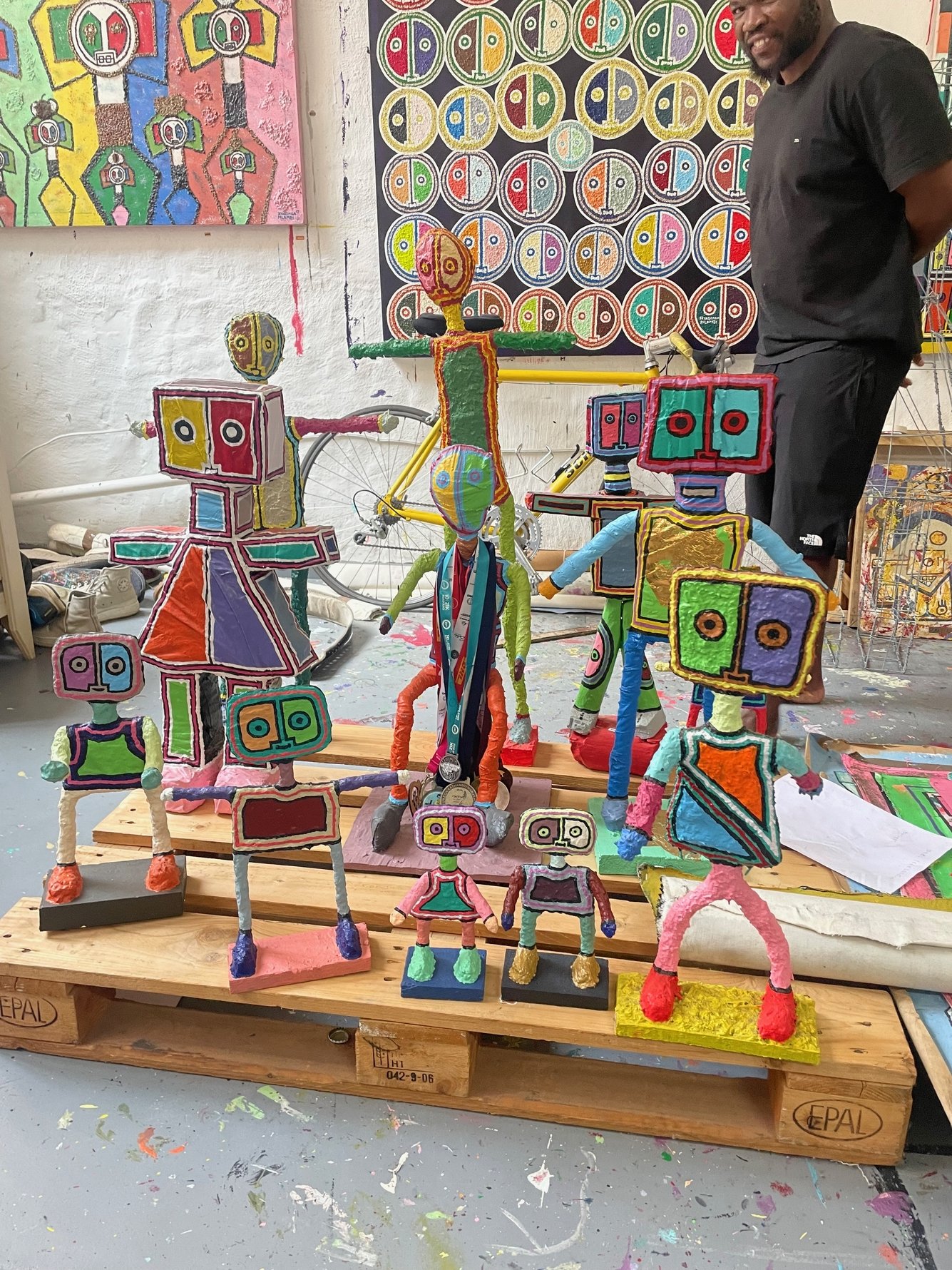
When artists finish works, they set them out in the corridor and landing area on the third floor, where they await critique from their neighbours. Inadvertently, this practice becomes a showcase of the building’s creative diversity – from thickly layered collages and found-object sculptures to large-scale oils and textile works. Artist Siyabonga Mlambi, whose unique style of "khanda art" gives discarded objects a vibrant new life, says being surrounded by such varied practitioners constantly shifts how he approaches his own work.
It is a sentiment Marasela shares. As one of the most experienced artists in the building, it's clear that she takes her role of mentor seriously – offering insights into each artist’s practice with care and admiration. Her expansive studio is one of the largest in the building, and doubles as a second gallery and event space. Here, as we walk through Saudade, an exhibition by Belmiro Jemusse, we also spot many of her own works-in-progress.
Expanding the mission
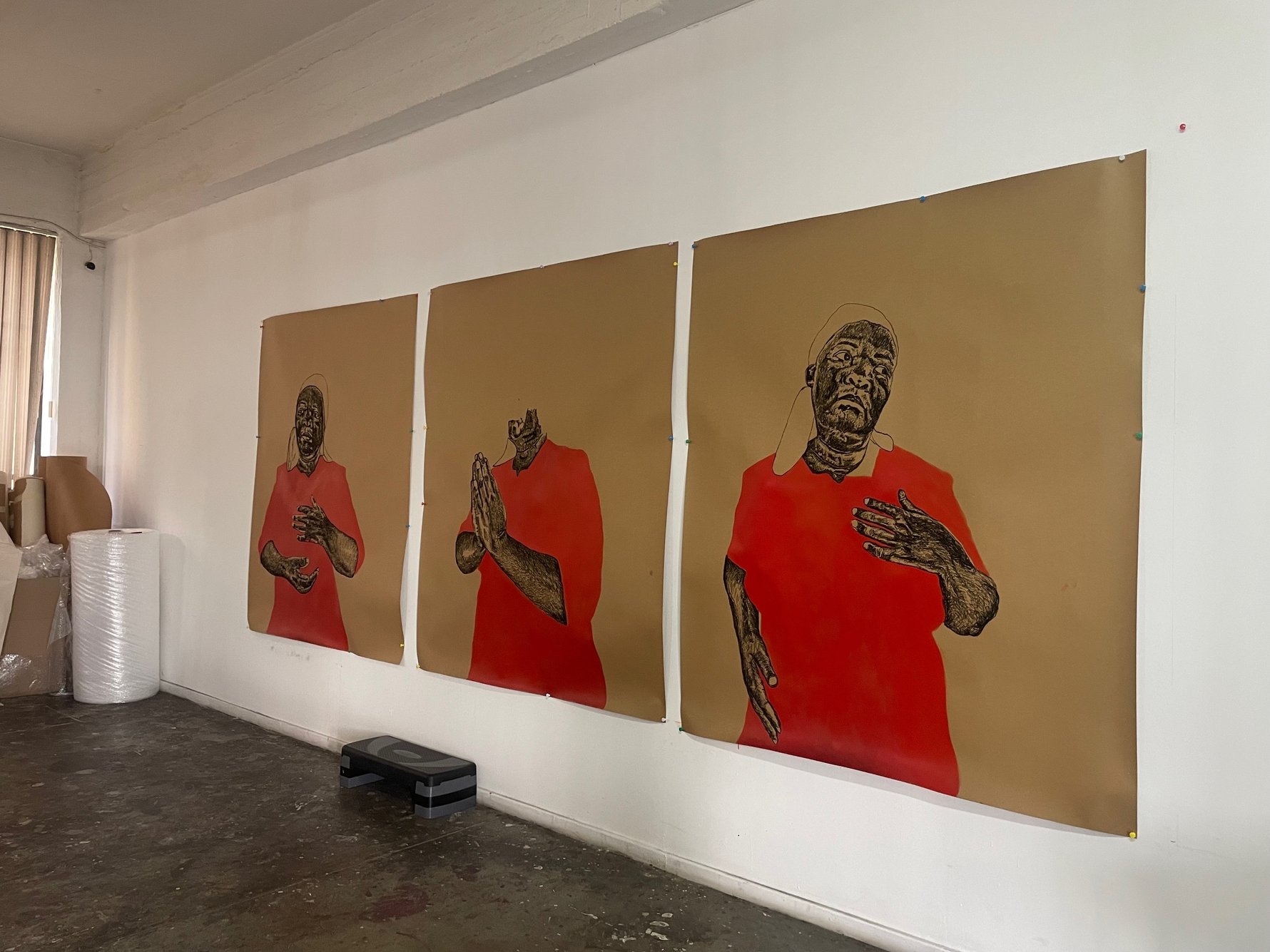
In addition to the full-time resident artists, Ellis House Art Building nurtures its wider community through residencies. These include a three-month placement for the winner of its annual arts competition, while Blessing Ngobeni runs his own residency as part of the Blessing Ngobeni Art Prize.
It is a process of expanding, building, and strengthening the community around them – and it’s hard not to share Marasela’s excitement as she talks about the future plans for Ellis House. Aside from continuing with their current programmes and exhibitions, Marasela says they want to start supporting young curators and writers too, giving them space to experiment. There's even talk of a potential school festival.
The space is anything but static – and it's certainly one to watch. By advancing artists and fostering creative dialogue, Ellis House is building a sustainable, far-reaching community around the arts in Joburg.
Visiting Ellis House Art Building
Currently, Ellis House Art Building is open by appointment only. To book a visit, contact:– Senzeni Marasela: +27 82 219 2328
– Lehlogonolo Masoabi: +27 73 687 8925
23 Voorhout St, Bertrams
Follow @ellishouseartbuilding on Instagram for details on open studios and upcoming exhibitions.


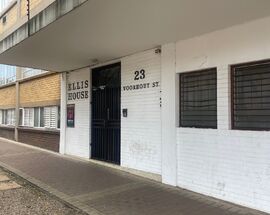

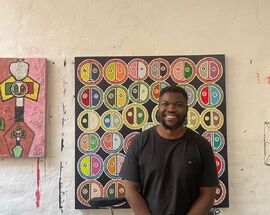


Comments